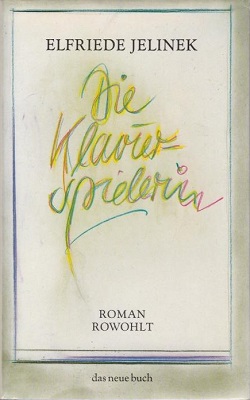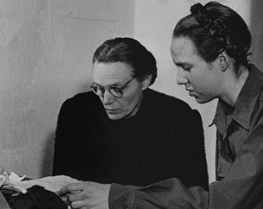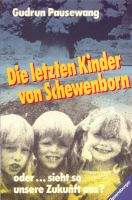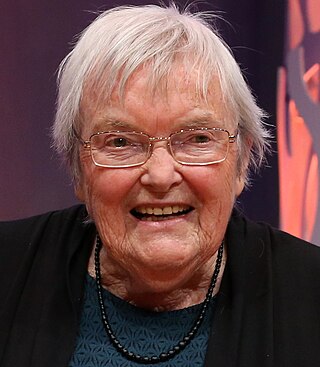
German literature comprises those literary texts written in the German language. This includes literature written in Germany, Austria, the German parts of Switzerland and Belgium, Liechtenstein, Luxembourg, South Tyrol in Italy and to a lesser extent works of the German diaspora. German literature of the modern period is mostly in Standard German, but there are some currents of literature influenced to a greater or lesser degree by dialects.

Horror is a genre of speculative fiction that is intended to disturb, frighten, or scare. Horror is often divided into the sub-genres of psychological horror and supernatural horror, which are in the realm of speculative fiction. Literary historian J. A. Cuddon, in 1984, defined the horror story as "a piece of fiction in prose of variable length ... which shocks, or even frightens the reader, or perhaps induces a feeling of repulsion or loathing". Horror intends to create an eerie and frightening atmosphere for the reader. Often the central menace of a work of horror fiction can be interpreted as a metaphor for larger fears of a society.

The undead are beings in mythology, legend, or fiction that are deceased but behave as if they were alive. A common example of an undead being is a corpse reanimated by supernatural forces, by the application of either the deceased's own life force or that of a supernatural being. The undead may be incorporeal (ghosts) or corporeal.

A splatter film is a subgenre of horror films that deliberately focuses on graphic portrayals of gore and graphic violence. These films, usually through the use of special effects, display a fascination with the vulnerability of the human body and the theatricality of its mutilation. The term "splatter cinema" was coined by George A. Romero to describe his film Dawn of the Dead, though Dawn of the Dead is generally considered by critics to have higher aspirations, such as social commentary, than to be simply exploitative for its own sake.

Elfriede Jelinek is an Austrian playwright and novelist. She is one of the most decorated authors to write in German and was awarded the 2004 Nobel Prize in Literature for her "musical flow of voices and counter-voices in novels and plays that, with extraordinary linguistic zeal, reveal the absurdity of society's clichés and their subjugating power". She is considered to be among the most important living playwrights of the German language.
Austrian literature is mostly written in German, and is closely connected with German literature.

Todtnauberg is a German village in Black Forest (Schwarzwald) belonging to the municipality of Todtnau, in Baden-Württemberg. It is named after the homonymous mountain. It is famous because it is the place where the German philosopher Martin Heidegger had a chalet and wrote portions of his major work, Being and Time.

The Piano Teacher is a novel by Austrian Nobel Prize winner Elfriede Jelinek, first published in 1983 by Rowohlt Verlag. Translated by Joachim Neugroschel, it was the first of Jelinek's novels to be translated into English.
Illness or Modern Women is a play by the Austrian playwright Elfriede Jelinek. It was published in 1984 in the avant-garde journal manuscripte of Graz and premiered on the stage of the Schauspielhaus Bonn on February 12, 1987, directed by Hans Hollmann. The play was published in book form by Prometh Verlag in 1987 with an afterword by Regine Friedrich. The title "parodically conflates women with illness." The play is based on an earlier, shorter radio play by Jelinek called Erziehung eines Vampirs, which appeared in 1986 on Süddeutscher Rundfunk.
Marlen Haushofer was an Austrian author, most famous for her novel The Wall (1963).

Gudrun Margarete Elfriede Emma Anna Burwitz was the daughter of Heinrich Himmler and Margarete Himmler. Her father, as Reichsführer-SS, was a leading member of the Nazi Party, and chief architect of the Final Solution. After the Allied victory, she was arrested and made to testify at the Nuremberg trials. Never renouncing Nazi ideology, she consistently fought to defend her father's reputation and became closely involved in neo-Nazi groups that gave support to ex-members of the SS. She married Wulf Dieter Burwitz, an official of the extremist NPD.

The Last Children of Schewenborn is a 1983 novel by Gudrun Pausewang, depicting life in rural Germany in the aftermath of a nuclear war.

Gudrun Pausewang, less commonly known by her married name, Gudrun Wilcke, was a German author of children's and young adult literature. She was known for books such as The Last Children of Schewenborn and Die Wolke which became part of the German school canon. Her key interests included peace and protection of the environment, and she warned of the alleged dangers of nuclear energy. Her books have been translated into English and received international recognition and awards.

Elfriede Gerstl was an Austrian author and Holocaust-survivor. Gerstl, who was Jewish, was born in Vienna, where her father worked as a dentist.
Elfriede, also known as Elfreda, Elfrida, Alfrida, Aelfrida, Elfrieda, Elftrude, Elftraut among other variants, is a female given name, derived from Ælfþryð (Aelfthryth) meaning "elf-strength". The name fell out of fashion in the Middle Ages and was revived in the 19th century in both England and Germany. Although some of its modern forms like Alfieda can be mistaken for feminine versions of Alfred, that derives from Ælfræd. The Southern German diminutive Friedel or Friedl is nowadays more common than the full name.

Wonderful, Wonderful Times is a novel by Austrian writer Elfriede Jelinek, published in 1980 by Rowohlt Verlag. It is Jelinek's fifth book. An English translation by Michael Hulse was published in 1990 by Serpent's Tail. A film adaptation of the novel, The Excluded, was released in 1982.

There is widespread belief in ghosts in English-speaking cultures, where ghosts are manifestations of the spirits of the dead. The beliefs may date back to animism or ancestor worship before Christianization. The concept is a perennial theme in the literature and arts of English-speaking countries.
John Edgar Browning is an American author, editor, and scholar known for his nonfiction works about the horror genre, Dracula, and vampires in film, literature, and culture. Previously a visiting lecturer at the Georgia Institute of Technology, he is now a professor of liberal arts at the Savannah College of Art and Design in Atlanta, Georgia.

The 2004 Nobel Prize in Literature was awarded to the Austrian writer Elfriede Jelinek "for her musical flow of voices and counter-voices in novels and plays that with extraordinary linguistic zeal reveal the absurdity of society's clichés and their subjugating power". She is the tenth female and the first Austrian Nobel laureate followed by Peter Handke in 2019.
Fatima Naqvi is a literary and film scholar whose research focuses on modern Austrian film, ecological films, affect studies and the interconnections of film, literature and architecture. She is currently the Elias W. Leavenworth Professor of Germanic Languages and Literatures and Film and Media Studies at Yale University. Her works include How We Learn where We Live: Thomas Bernhard, Architecture, and Bildung and The Literary and Cultural Rhetoric of Victimhood: Western Europe, 1970-2005.













